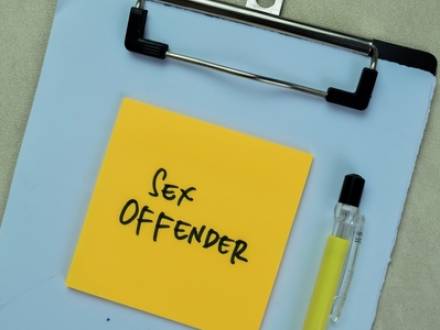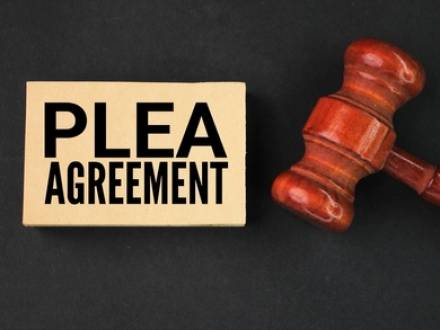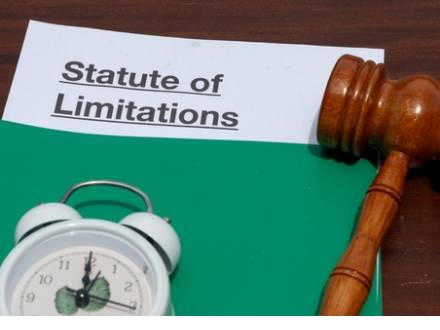Recent Blog Posts
The Legal Gray Area: Gifts, Support, and Prostitution Charges
 In the state of Texas, prostitution laws (Texas Penal Code Title 9, Section 43.02) target more than street-based transactions that offer sex for money. In some cases, "non-traditional" relationships where one person provides financial support, housing, or expensive gifts in exchange for ongoing intimacy can come under legal scrutiny. These arrangements are often known as being "kept," or having a "sugar daddy" (or sugar mama).
In the state of Texas, prostitution laws (Texas Penal Code Title 9, Section 43.02) target more than street-based transactions that offer sex for money. In some cases, "non-traditional" relationships where one person provides financial support, housing, or expensive gifts in exchange for ongoing intimacy can come under legal scrutiny. These arrangements are often known as being "kept," or having a "sugar daddy" (or sugar mama).
This type of arrangement can blur the legal lines between the crime of prostitution and a consensual adult arrangement. If you find yourself being charged with prostitution for having a less-than-traditional arrangement, you must speak to a highly experienced Plano, TX criminal defense lawyer. The fallout from a prostitution conviction can be significant, both immediately and for the foreseeable future.
Wiretap Warrants in Federal Cases: Are They Listening to You?
 While federal agents listening to your phone calls and reading your texts may sound like something out of a spy movie, in Texas federal cases, it is a very real possibility if you are under investigation. The government can and does use wiretap warrants to monitor communications in investigations involving drugs, fraud, organized crime, and other federal crimes.
While federal agents listening to your phone calls and reading your texts may sound like something out of a spy movie, in Texas federal cases, it is a very real possibility if you are under investigation. The government can and does use wiretap warrants to monitor communications in investigations involving drugs, fraud, organized crime, and other federal crimes.
If you have ever wondered whether the federal government is listening to your conversations, it is essential to understand the process and your rights. An experienced Texas federal crimes lawyer can help determine whether a wiretap is on your phone, and, if so, help you mitigate potential charges in some cases.
What is a Federal Wiretap Warrant and When Can It Be Used?
The definition of a federal wiretap warrant can be found in Title III of the Omnibus Crime Control and Safe Streets Act. The agencies most likely to be involved in wiretap investigations in Texas include the DEA, FBI, and ATF. There are differences between state and federal wiretap authority. Federal laws establish the baseline privacy protections for all wire, oral, and electronic communications. Texas, and many other states, are "one-party" consent regarding recording conversations, meaning an individual can record a conversation if they are a participant, or if one participant consents.
Texas Laws on Indecent Exposure: When Does It Become a Crime?
 While not all inappropriate behavior or even public nudity results in criminal charges, in Texas, certain acts can quickly cross the legal line into indecent exposure. Although indecent exposure could stem from a prank taken too far, or even a misunderstanding, if you have been charged with indecent exposure, it is no laughing matter. A conviction for indecent exposure can have serious consequences, including, in some cases, mandated sex offender registration.
While not all inappropriate behavior or even public nudity results in criminal charges, in Texas, certain acts can quickly cross the legal line into indecent exposure. Although indecent exposure could stem from a prank taken too far, or even a misunderstanding, if you have been charged with indecent exposure, it is no laughing matter. A conviction for indecent exposure can have serious consequences, including, in some cases, mandated sex offender registration.
So, when does a moment of poor judgment become a criminal act? Under Texas Penal Code Section 21.08, the key legal elements of indecent exposure include the exposure of one’s genitals with the intent to arouse or gratify sexual desire. The law also requires that another person witnessed the exposure and found it offensive or alarming. A Plano, TX criminal defense attorney can build a strong defense on your behalf to avoid a conviction that could adversely affect the rest of your life.
Penalties for Failure to Register as a Texas Sex Offender
 In the state of Texas, those convicted of certain sex offenses, especially sex offenses against children, must legally register as sex offenders under the Sex Offender Registration Program. The sex offender registry is not optional, and failure to comply comes with serious legal consequences. Something as simple as forgetting to update a home address or more serious issues, such as skipping annual verification or willfully avoiding registration, can trigger felony charges, extended registration periods, and even prison time.
In the state of Texas, those convicted of certain sex offenses, especially sex offenses against children, must legally register as sex offenders under the Sex Offender Registration Program. The sex offender registry is not optional, and failure to comply comes with serious legal consequences. Something as simple as forgetting to update a home address or more serious issues, such as skipping annual verification or willfully avoiding registration, can trigger felony charges, extended registration periods, and even prison time.
If you are facing charges of failing to register or another type of sex offender registry issue, it can be beneficial to know what the law requires and what penalties you face. Having an experienced Plano, TX criminal defense lawyer to walk you through the process can be an invaluable resource. A strong legal defense can potentially keep you out of prison, so it is important that you not wait to "see what happens."
Charged with a Federal Crime While on Probation or Parole?
 Being charged with a federal crime is serious in its own right, but if you are already on state or federal probation or parole, the consequences can multiply quickly. A new arrest can trigger a probation or parole violation that could send you back to jail even before your new charges are resolved.
Being charged with a federal crime is serious in its own right, but if you are already on state or federal probation or parole, the consequences can multiply quickly. A new arrest can trigger a probation or parole violation that could send you back to jail even before your new charges are resolved.
It is essential to understand how these overlapping legal issues are addressed in federal court, what the government must prove, and how an experienced criminal defense attorney can help you navigate the complexities. Now is not the time to try to handle your legal issues on your own; call a knowledgeable Plano, TX criminal defense attorney who is skilled in handling federal charges.
Why are New Federal Charges While on Probation or Parole so Serious?
A key condition of probation and parole is the requirement to obey the law and refrain from committing further offenses. Committing a new crime directly violates these terms. In many instances, committing a new criminal offense while on parole or probation can be serious enough to warrant revocation. Revocation means the person can be sent back to prison to serve all or part of his or her original sentence that was suspended through probation or parole.
Defending Against Sex Trafficking Charges in Texas
 A Jacksonville, TX man was recently convicted of sex trafficking teens, leading to a sentence of life in federal prison. The 28-year-old man received seven life sentences on June 18th after being convicted of six counts of sex trafficking of children and one count of conspiracy to commit sex trafficking of children. The teenage girls were recruited via social media and deceived by promises of money for modeling.
A Jacksonville, TX man was recently convicted of sex trafficking teens, leading to a sentence of life in federal prison. The 28-year-old man received seven life sentences on June 18th after being convicted of six counts of sex trafficking of children and one count of conspiracy to commit sex trafficking of children. The teenage girls were recruited via social media and deceived by promises of money for modeling.
The girls were then placed in hotels in the Tyler, TX area, and sex advertisements were placed on the internet. Some of the victims were as young as 13 years old. Sex trafficking charges in the state are among the most serious accusations a person can face. These charges carry severe criminal penalties, as well as lengthy prison sentences and mandatory sex offender registration.
Negotiating Plea Deals in Texas Sex Crime Cases
 Facing sex crime charges in the state of Texas can be overwhelming. The penalties for a conviction include lengthy prison sentences, sex offender registration, and a permanent criminal record. However, in some cases, a trial is not the only path forward, and if you can avoid a trial, you will also avoid much of the ugliness that accompanies sex crime trials.
Facing sex crime charges in the state of Texas can be overwhelming. The penalties for a conviction include lengthy prison sentences, sex offender registration, and a permanent criminal record. However, in some cases, a trial is not the only path forward, and if you can avoid a trial, you will also avoid much of the ugliness that accompanies sex crime trials.
Prosecutors and defense attorneys commonly engage in plea negotiations in an effort to resolve charges without ever going to court. If you are facing sex crime charges, a well-negotiated plea deal may reduce your penalties or perhaps even reclassify your offense. In some cases, charges can be dismissed entirely. When you have an experienced Plano, TX criminal defense attorney who is highly skilled in plea bargaining, you could end up with a much better outcome.
Is Sexual Coercion the Same as Sextortion in Texas?
 Sextortion is the name for a relatively new sex crime that includes blackmail. The perpetrator of sextortion coerces an individual, often a teenage boy or girl, into sending nude or sexual images or videos. The perpetrator then threatens to send those images to the individual's parents, spouses, coworkers, family members, or schoolmates if the individual does not send money.
Sextortion is the name for a relatively new sex crime that includes blackmail. The perpetrator of sextortion coerces an individual, often a teenage boy or girl, into sending nude or sexual images or videos. The perpetrator then threatens to send those images to the individual's parents, spouses, coworkers, family members, or schoolmates if the individual does not send money.
Reports of sextortion schemes have skyrocketed across the nation. The National Center for Missing and Exploited Children says it received more than 500,000 reports of sextortion scams targeting minors in 2024. At least 20 young people have taken their own lives as a direct result of sextortion scams since 2021.
While most states do not have specific sextortion laws (although that is changing), they do have other laws under which this crime is charged. If you are charged with a crime similar to sextortion in Texas, you must take these charges very seriously and contact a Plano, TX criminal defense attorney as quickly as possible.
Statute of Limitations Effect on Sexual Abuse Allegations
 Statutes of limitations (SOL) are a window of time in which victims and the state have to bring criminal charges or a civil lawsuit. Murder is exempted from the statute of limitations in most states, meaning a person can be prosecuted for murder no matter how long it has been since the crime occurred. Sex crimes against minors, certain other violent crimes, and crimes that involve public funds may have no statute of limitations in some states.
Statutes of limitations (SOL) are a window of time in which victims and the state have to bring criminal charges or a civil lawsuit. Murder is exempted from the statute of limitations in most states, meaning a person can be prosecuted for murder no matter how long it has been since the crime occurred. Sex crimes against minors, certain other violent crimes, and crimes that involve public funds may have no statute of limitations in some states.
Statutes of limitations vary from state to state and according to whether the claim is criminal or civil. An alleged sexual abuse crime in Texas has brought the issue of statutes of limitations to the forefront. A North Texas megachurch founder and pastor faces child sex abuse charges in Oklahoma for allegations that he had sexual relations with a 12-year-old girl in Oklahoma when he was a traveling preacher in the 1980s. The victim is now 55, meaning under Texas law, the statute of limitations for a civil claim has tolled.
Texas Serial Bank Robber Receives 10 Years in Federal Prison
 A man who robbed banks in Irving, Dallas, and Garland, Texas, while on supervised release for a prior bank robbery conviction, was recently sentenced to more than a decade in federal prison. Since the 1930s, the FBI has played a primary role in bank robbery investigations, beginning with notorious bank robbers John Dillinger and his gang. In 1934, robbing any national or state member bank of the Federal Reserve System became a federal crime.
A man who robbed banks in Irving, Dallas, and Garland, Texas, while on supervised release for a prior bank robbery conviction, was recently sentenced to more than a decade in federal prison. Since the 1930s, the FBI has played a primary role in bank robbery investigations, beginning with notorious bank robbers John Dillinger and his gang. In 1934, robbing any national or state member bank of the Federal Reserve System became a federal crime.
The 43-year-old man in the example above was first convicted of bank robbery in 2018. At that time, he was sentenced to six years in prison. He was released after serving his time, and less than five months later, he robbed three banks in Texas within the space of a week. After his arrest, he pleaded guilty to bank robbery in October 2024.

















